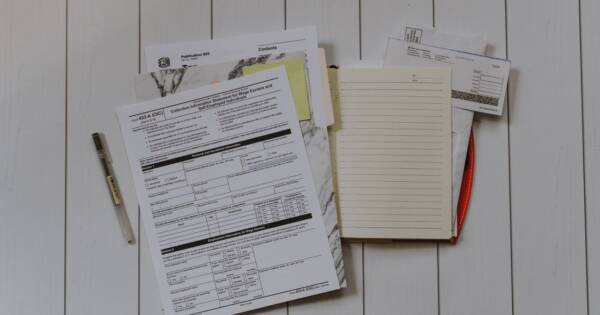Property law consists of regulations that govern what people own, whether it’s land or personal property objects. These laws might dictate who can own land, who owns what personal items, such as in the case of a will execution, and under what conditions those individuals own land or individual personal property items. Property law can generally fall under two large umbrellas: personal property law and real property law. Understand their distinct differences and basic information about each type below.
Personal Property
Personal property generally refers to tangible stuff — jewelry, vehicles, record collections, books — all of those things would be considered personal property.
However, there are also some intangible things that are considered personal property. Intangible personal property includes items that can’t be felt or touched, such as:
- Stocks
- Bonds
- Bank accounts
- Intellectual property, such as patents and copyrights
When it comes to rules about personal property, state law usually dictates specific rules and how they apply to your situation. Just as with any legal matter, it’s a good idea to consult with an attorney to find out what your options are.
Personal Property Law Applications
Divorce
One of the most common applications of personal property law is during a divorce, when both spouses are in the process of splitting up tangible and intangible assets.
Death
When a loved one passes away, their will or trust may outline specifics of personal property distribution to family members, such as monetary amounts or personal items. Essentially, a will specifies how someone’s property is distributed to their beneficiaries upon their death. The person who owns the property draws up the will, often with the help of an attorney, to ensure their wishes are known and followed upon their passing.
Other applications of personal property law include:
- Personal property tax consequences
- Personal property contracts
- Personal property distribution during a business sale
Real Property
Real property, on the other hand, is property that can’t be moved. It includes land and anything attached to it or growing or erected on it, including human-made objects and excluding anything removable (that won’t cause harm to the land when removed). A farm, a plot of wooded land or a parcel that contains a house would all be considered real property.
When is property law applied? Check out some of the situations below to understand when property law might be applied to real property situations.
Real Property Law Applications
Transferring Property
One situation where property laws are applied is during an ownership transfer. When someone is purchasing land, local and state property laws are taken into consideration to complete the sale.
Transferring property might also occur in cases when there is dual ownership of real estate. If one of the owners dies, for example, their ownership may need to be transferred to another person. This can be done with the help of a lawyer to navigate any murky legal areas.
Creating or Transferring a Deed
Within common law, a deed is a written document. It can confirm ownership and outline property rights, and it’s closely related to a title — but it is not the same thing.
In real estate, a title is a legal document that includes specifics about the property you’re purchasing, who currently owns it and whether there are any outstanding liens or easements on it.
A property deed in real estate is a written legal document that’s used to transfer property ownership from one person to another. In their most basic form, deeds typically contain:
- A description of the property in question, including how many acres, whether there are buildings on it and whether there are areas of wetlands, for example
- The names of the parties involved, both the current property owner and who it is being transferred to
- The signature of the person transferring ownership
Enforcing Zoning Laws
Zoning is its own area of property law, and the intricacies of zoning laws Define: Zoning Laws Laws that permit and restrict what property owners can do with their land. are usually handled at the local or state level. A simple example might be a parcel that’s zoned for residential use — this means whoever owns it can build structures consistent with residential or farm living: a house, shed, a chicken coop or a barn, to name a few examples. This same property owner couldn’t build an auto repair shop or a retail store, since the property is classified as residential.
In order for someone to build a store or other commercial building, the land would have to be zoned for commercial use. In some cases, zoning might even preclude agricultural or other use of land, even on a small scale.
Again, zoning laws vary by town, county and/or state, so consult with a property attorney for legal assistance with navigating zoning laws.
Classifying Personal Property and Real Property
While the distinction between both types of property may seem fairly cut and dry, sometimes there’s overlap. For example, suppose you want to build a chicken coop on your property. You gather the necessary supplies, such as lumber, chicken wire, nails, poultry staples and other tools you might need. Your building materials are considered personal property.
When the chicken coop is finished, it is not considered personal property. Instead, it’s considered real property because it’s a structure on your land.






